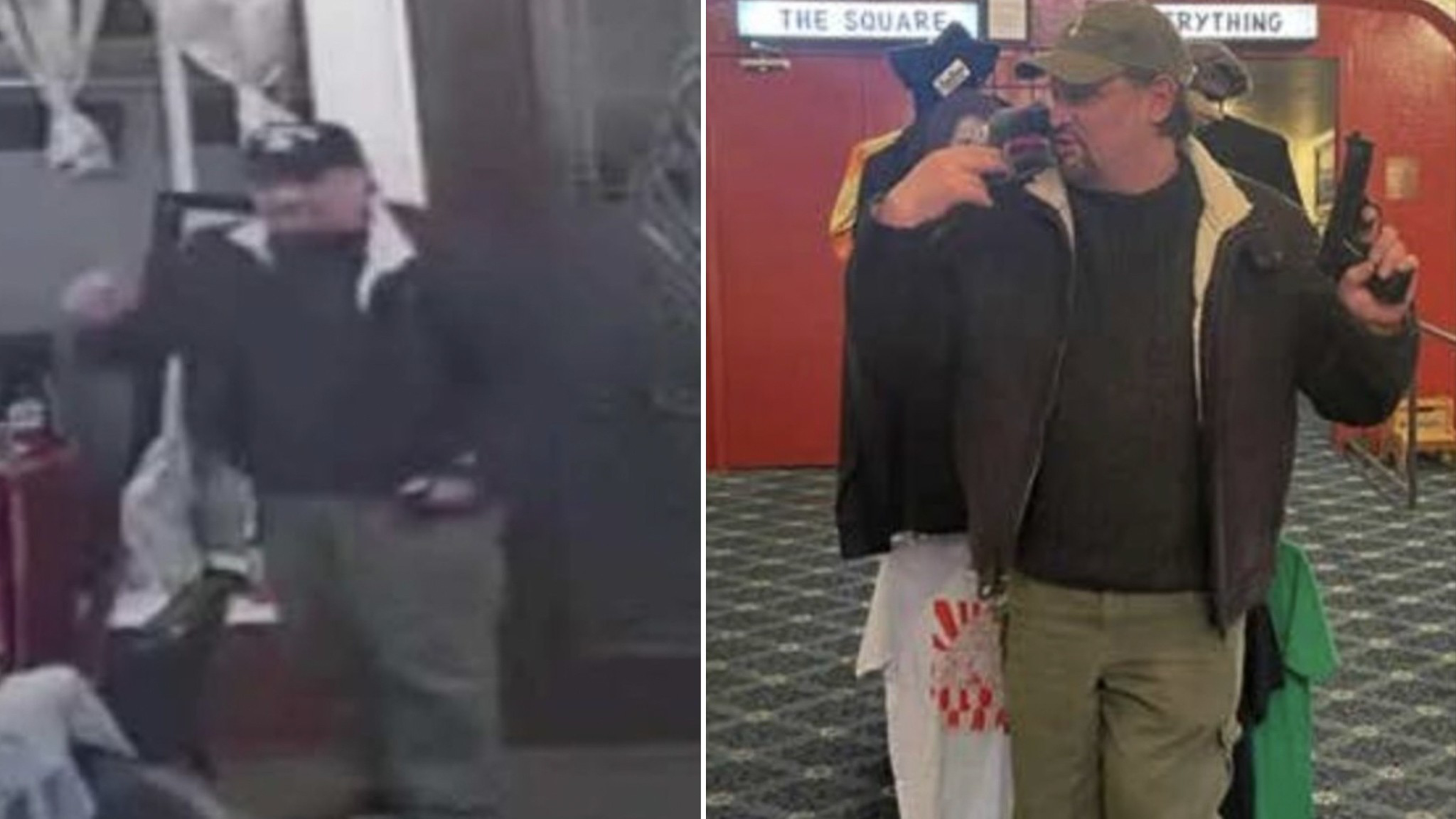The troubled past of a man accused of terrorizing a San Francisco synagogue has become the latest test case for a strategy increasingly used in California to keep guns away from dangerous people.
The allegations against Dmitri Mishin, 51, mounted for over a decade and included crimes as serious as groping a child and stabbing a man—but never led to any convictions. Now that Mishin is jailed for allegedly firing blanks inside the Richmond District’s Schneerson Center on Feb. 1, San Francisco is doubling efforts to stop him from hurting someone going forward.
The city will ask a San Francisco Superior Court judge on Thursday morning to bar Mishin from carrying a firearm for the next five years by granting what’s called a Gun Violence Restraining Order against him.
The request is part of a concerted effort by the City Attorney’s Office to increasingly seek such orders under San Francisco’s version of a state law that first created the orders in 2016.
While still trailing behind San Diego—California’s model city for obtaining the red flag orders—San Francisco’s success petitioning the court for Gun Violence Restraining Orders jumped from three cases in 2019 to 19 in 2022.
Through the orders, the city has taken more than 50 guns and 1,000s of rounds of ammunition away from dangerous people in the last five years, including from someone who strangled and wished death upon his mother as well as a road rage driver who held a knife to someone’s throat.
City officials hope their push to keep weapons away from Mishin will make more people aware of the gun orders and how one doesn’t have to be a public servant to request one. Neighbors, colleagues and some other types of petitioners can also ask a judge to sign the orders against someone who may endanger themselves or others.
“Mr. Mishin is a textbook example of someone who is a danger to the community and should not have access to firearms,” City Attorney David Chiu told The Standard in an interview. “This is an important opportunity to remind the public that [Gun Violence Restraining Orders] are effective tools to prevent gun violence.”

It’s unclear why officials did not request the order against Mishin sooner—or whether getting one now will help when he’s already locked up.
Mishin’s history of arrests and police stops date back to 2011 in San Francisco for alleged crimes ranging from stealing a flower, to throwing a dog bowl at his ex-wife, to hitting someone with a stolen flag pole.
He also appears to have a penchant for posting Nazi imagery on social media, including antisemitic propaganda and photographs that seem to show Mishin wearing a World War II-era German military uniform.
As recently as June 2021, San Francisco police say they stopped Mishin while he was walking down a street near Sea Cliff with a .22 caliber rifle. Police said the rifle Mishin claimed was a “movie prop” turned out to be real. Officers say Mishin also handed over a box of ammunition for the gun.
Despite Mishin’s lengthy rap sheet and his dubious claim that he found the rifle on the street in front of a Chinese restaurant, the officer who wrote up the report on the incident said a mental health evaluation indicated “he was not a danger to himself or others.”
That could explain why police did not seek a GVRO against him at the time.
Police took the gun from Mishin, but it wasn’t until after the synagogue shooting that the department asked for help securing a Gun Violence Restraining Order against him, according to the City Attorney’s Office.
When police searched Mishin’s home on Feb. 3, the City Attorney’s Office says officers found over 300 rounds of ammunition, a Saiga .308, a replica rifle and handgun and a broken rifle.

SFPD did not respond to requests for comment.
Chiu said his office has trained with SFPD and other law enforcement agencies in recent months so officers know how the city can help get an order.
“Our office is 1,000% focused on ensuring that we move forward with Gun Violence Restraining Orders where we need to,” Chiu said. “And certainly, if we had been apprised of this situation involving Mr. Mishin earlier, we would have acted earlier.”
Supervisor Catherine Stefani has made increasing the use of these restraining orders a key priority for her office. In 2019, she authored a local law that requires San Francisco police to get the orders (opens in new tab) against people deemed dangerous when other “less restrictive” interventions have failed. She also helped secure additional funding for city attorneys to request the orders.
Without knowing Mishin’s entire history, Stefani said police can learn a lot from his case.
“What the individuals went through in that synagogue, they never should have experienced,” Stefani said. “It’s just an example of how we need to be diligent when it comes to this epidemic, we have to do everything we can.”
Rabbi Bentziyon Pil, who leads the Schneerson Center, said a gun ban would have been a logical next step considering Mishin’s violent history. But the rabbi and his congregants remain skeptical: They had so little confidence in law enforcement that they initially didn’t tell police about the shooting.
Now, they fear Mishin will end up in a mental institution for mere months before he’s released.
“People are already scared to come to synagogue,” the rabbi said, “and then more people will be scared.”
Mishin, who’s been jailed since his Feb. 3 arrest, pleaded not guilty to felony religious terrorism and other charges filed against him.
